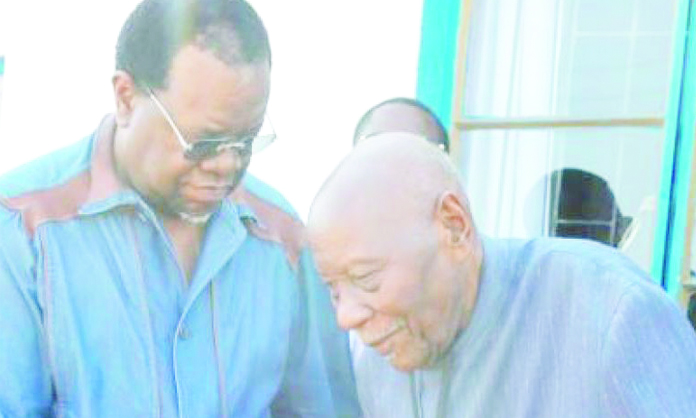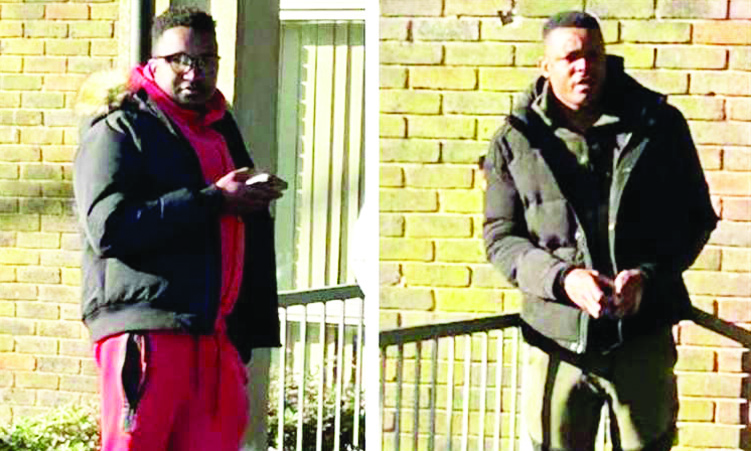The death of archbishop Peter Katikisa Daniel Uariune Tjijombo, on Sunday morning, robbed the Namibian nation of a leading political mobiliser and pioneering clergyman.
Former Windhoek mayor Muesee Kazapua yesterday described the late Tjijombo as someone who touched lives wherever he went, not only for his work as a man of faith, but his socio-political activities that helped propel the unity among the people.
Kazapua said: “Bishop Tjijombo has contributed immensely and significantly to the development of this country. He was most active in the 1960s and 70s where apart from being a man of faith who promoted good values and norms, he also joined the liberation bandwagon and was instrumental in mobilising Namibians to join the fight for independence.”
According to Kazapua, Tjijombo helped many young people at the time, who were eager to join the likes of founding president Sam Nujoma, former president Hifikepunye Pohamba and president Hage Geingob in exile, through Gobabis to Botswana and eventually to Europe or the Americas where they were given opportunities for better education.
“Locally, he also helped the vulnerable and destitute members of society, especially in the Khomas and Omaheke regions. He had a car, which was nicknamed Lubango, with which he transported food to the needy. It was donated to him by Swapo,” Kazapua said.
He said it was because of Tjijombo’s heroic deeds that during his tenure as Windhoek mayor, the council renamed Spreuke Street to Bishop PKD Tjijombo Street.
Politically and culturally, Tjijombo is said to have been a force to reckon with, associated with people like the late reverend Bartholomeus Gerhardt Karuaera and reverend Erwin Tjirimuje, as well as other prominent Ovaherero people who were politically active.
Yesterday, Geingob paid tribute to Tjijombo, saying he will be remembered for his selfless service to the community and dedication to Namibia’s freedom.
Geingob shared fond memories of Tjijombo, following his return from exile, saying they developed a lasting connection and friendship.
“His generous spirit of friendliness should inspire current and future generations to dedicate their lives to serving fellow Namibians,” Geingob said.
THE GENESIS
Tjijombo was the founder of St John’s Apostolic Faith Mission in Namibia. He was born in 1936 in Kaokoland.
Authors Gerhard Buys and Shekutaamba Nambala, in their work entitled, ‘History of the Church in Namibia 1805-1990, an Introduction’, say in 1952, Tjijombo had a dream in which God called him to the Christian ministry. And in 1953, he moved to Windhoek with his parents and started a personal ministry under the Oruuano Church.
While in Windhoek, he reportedly heard about the Wilberforce Institute of the AME Church in Evaton, south of Johannesburg, offering theological education for Africans. He was admitted and studied for two years at the institute.
On his return to Namibia in 1955, Tjijombo reportedly rejoined Oruuano for four years until 1959.
“That year, he returned to the Wilberforce Institute in Evaton to continue his studies. While in Evaton, Tjijombo discovered the headquarters of St John’s Apostolic Faith Mission (SJAFM), founded by the woman prophet, Christina Nku or Ma Nku and became a member, after being re-baptised by bishop Masango, and being ordained as preacher,” the authors narrate, adding that he was then sent to Namibia to establish SJAFM in 1960.
In 1960, Tjijombo built his first church in the village of the late Ovambanderu chief Munjuku Nguvauva II, at Epukiro, and the beginning was a time of magnificent growth for the SJAFM, with three services per day. The church also spread to Aminuis.
In 1964, the Ovambanderu reportedly established their own tribal church called the Church of Africa, under the leadership of Daniel Kandjavera. And although Tjijombo was offered the position of prophet in the Church of Africa under Kandjavera’s leadership, he declined.
Stay informed with The Namibian – your source for credible journalism. Get in-depth reporting and opinions for
only N$85 a month. Invest in journalism, invest in democracy –
Subscribe Now!









